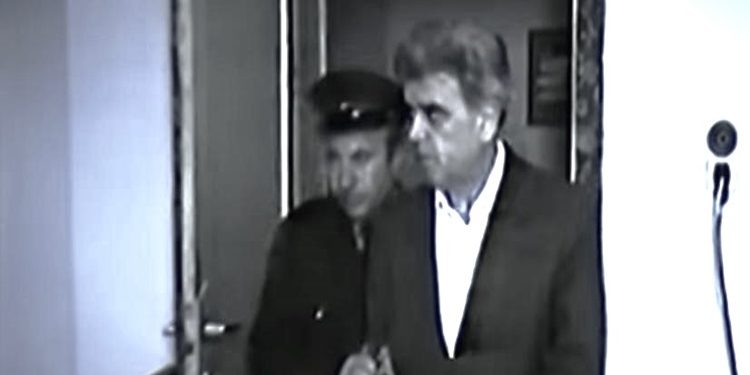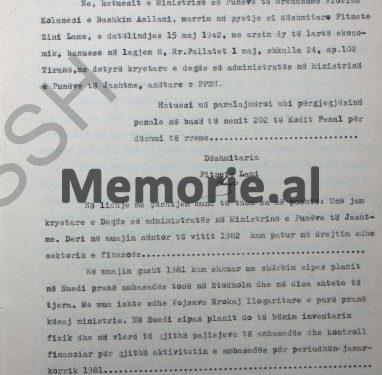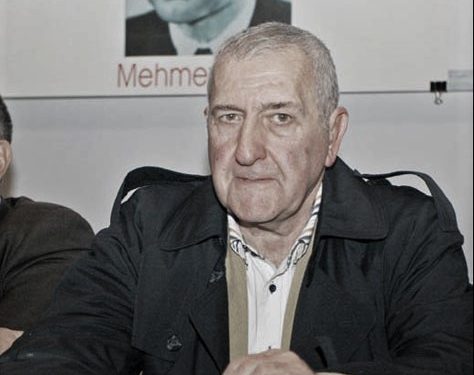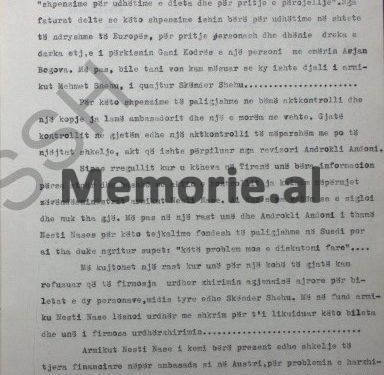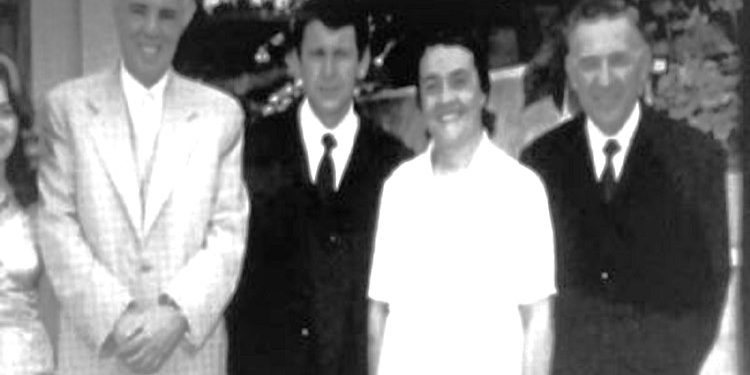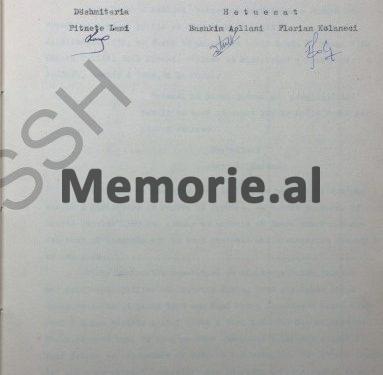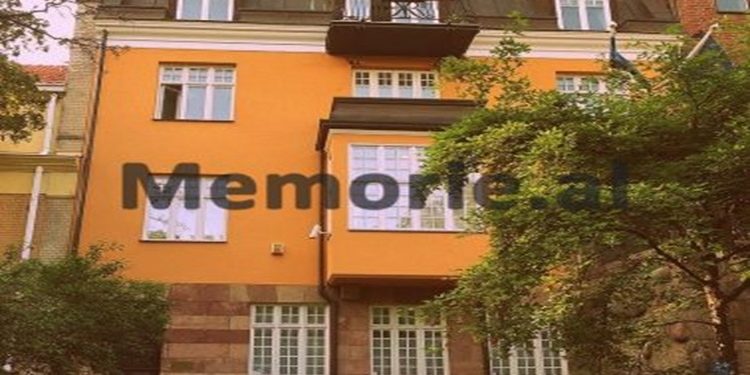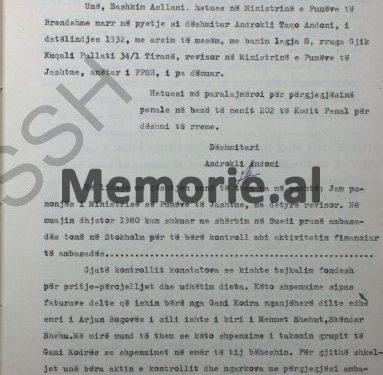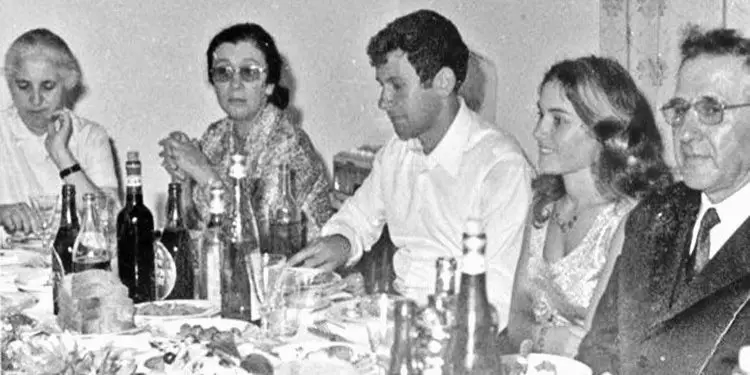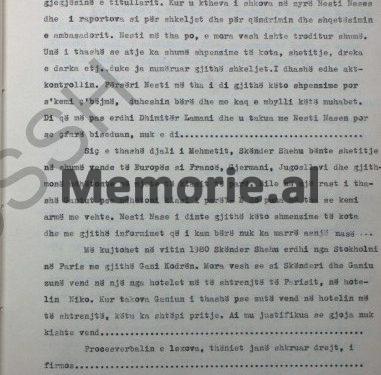From Dashnor Kaloçi
Part Thirty-Six
Memorie.al / Exactly 43 years ago, on the dawn of December 18, 1981, the Albanian Prime Minister Mehmet Shehu, who had held that position since 1953, was found dead in his bedroom (according to the official version, from a bullet “from” a pistol) in the villa where he lived with his family, at the entrance to the “Block” of the high leadership of the Albanian Labor Party, just a few meters from the building of the Central Committee of the Albanian Labor Party and also from Enver Hoxha’s villa 31. Although more than four decades have passed since that day, which is considered one of the most serious and sensational events of that regime, even today there is no clear and accurate version regarding what happened to the former Albanian Prime Minister, Mehmet Shehu, in the night leading into December 18, 1981! However, even though numerous testimonies and archival documents related to that event have been made public after the ’90s, the “murder or suicide of Mehmet Shehu” continues to be a subject of much debate and discussion, further shrouding the truth surrounding it in mystery!
Given this fact, within the framework of publishing dozens of testimonies and files with archival documents from the secret fund of the former State Security and the Ministry of Interior, as well as the Central Committee of the Albanian Labor Party, which we have published over the three decades following the fall of the communist regime of Enver Hoxha and his successor, Ramiz Alia, the newspaper has secured the voluminous file of “the enemy and poli-agent Mehmet Shehu,” which has been retrieved from the secret fund of the former State Security at the Ministry of Interior (now de-classified and part of the fund of the Authority for Information on the Documents of the former State Security), where, with a few small exceptions, the majority of them have never seen the light of publication and are being published here for the first time in full with the respective facsimiles.
In this file, in addition to the testimonies from witnesses or defendants in the investigation, there are also complete expert reports from the operational-investigative group that was immediately formed on the morning of December 18, 1981, led by Koço Josifi (head of the Investigation of the Directorate of Internal Affairs of Tirana), the forensic doctors Dr. Fatos Hartito and Docent Bashkim Çuberi, the doctors of the Prime Minister, Milto Kostaqi and Llesh Rroku, the criminal expert from the Central Criminal Laboratory of the Ministry of Interior, Estref Myftari, assisted by high-ranking officials of that ministry, Deputy Minister Xhule Çiraku, head of the Directorate of Investigation at the Ministry of Interior Elham Gjika, and the deputy director of the Directorate of Internal Affairs of Tirana, Lahedin Bardhi.
In this file, there are also testimonies from the family members of former Prime Minister Mehmet Shehu, service personnel, and his escort group, as well as all other individuals who were summoned and deposed regarding that event.
However, even though we are dealing with archival documents, it should be emphasized that, knowing how the communist regime operated before the ’90s, we cannot claim absolute truth regarding what is written there. This is because not only from the witnesses and defendants who provided their testimonies but also from some of the investigators of this case (mostly after the ’90s), it has been made known that such testimonies were taken under pressure, intimidation, and torture, both physical and psychological, with some investigators even writing them themselves and the witnesses or defendants merely signing them.
In fact, for some of the defendants in this investigative process, specifically in the case of Fiqret Shehu, the questions were drafted by Enver Hoxha personally (in his own handwriting) and sent to the investigators through the Minister of Internal Affairs, Hekuran Isai (which we have published with corresponding facsimiles in past writings), all to facilitate the “exposure of the hostile group of the poli-agent Mehmet Shehu” in order to justify his suicide (according to the official version)!
In this context of the dictator Enver Hoxha’s paranoia, those arrested and placed on the defendants’ bench included: Kadri Hazbiu (former member of the Political Bureau of the Central Committee of the Albanian Labor Party and Minister of Internal Affairs and Defense), Feçor Shehu (former Director of State Security and Minister of Internal Affairs), Nesi Nase (former Minister of Foreign Affairs), Llambi Ziçishti (former Minister of Health), Llambi Peçini (former head of the Department of Preservation and Physical Security of the high leadership of the Albanian Labor Party), Elham Gjika (former head of the Investigation of the Ministry of Internal Affairs), Gani Kodra (former head of the Department of Preservation and Physical Security of the high leadership of the Albanian Labor Party and of Mehmet Shehu’s family), Kristofor Martiro (former investigator of the “hostile group of Beqir Balluku”), Ali Çeno (former head of the escort team of Prime Minister Mehmet Shehu), Xhavit Ismailaga (former barber at Hotel “Dajti”), Idriz Seiti (former colonel of State Security, chairman in the Departments of Internal Affairs in Kukës and Lezhë, and head of the branch in the Ministry of Interior for the preservation, security, and execution of anti-party individuals), Lirim Pëllumbi (former head of the Department of Internal Affairs of the Durrës district), Qamil Mane Islami (former colonel in the Directorate of Camps and Prisons at the Ministry of Internal Affairs), Duro Shehu (brother of Mehmet Shehu, former commissioner in the Directorate of Air Force of the Ministry of Defense), Fiqret Shehu, wife of Mehmet Shehu, along with their two sons, Bashkimi and Skënderi, etc., etc.
From this “hostile group,” the first four (Kadri Hazbiu, Feçor Shehu, Llambi Ziçishti, and Llambi Peçini) were sentenced to death and executed, while the others received heavy prison sentences, from which they were only released in 1991, with the exception of Fiqret Shehu, who died in prison in 1987 under mysterious and still unexplained circumstances, as well as the eldest son of the Shehu family, Vladimir, who also died under still unexplained mysterious circumstances in the city of Gramsh (the official version being suicide), where he had been interned with his family in January 1982. For more about all these events, the relevant documents provide insight, which we are publishing alongside corresponding facsimiles and photographs.
CONTINUED FROM THE LAST ISSUE
MINUTES OF THE INTERROGATION OF FITNETE LAMI, HEAD OF THE ADMINISTRATIVE DEPARTMENT OF THE MINISTRY OF FOREIGN AFFAIRS, BY THE INVESTIGATORS OF THE MINISTRY OF INTERNAL AFFAIRS, FLORJAN KOLANECI AND BASHKIM ASLLANI
MINUTES
(Of the witness interrogation)
Today, on the date 20.1.1983 in Tirana
We, the investigators of the Ministry of Internal Affairs, Florian Kolaneci and Bashkim Asllani, are questioning as a witness, Fitnete Zini Lami, born on May 15, 1942, with a degree in economics, residing in Neighborhood No. 8, “1 Maji” Buildings, Stair 24, Apartment 102, Tirana, in her capacity as head of the administrative department at the Ministry of Foreign Affairs, member of the Albanian Labor Party.
The investigator warned me about the criminal responsibility based on Article 202 of the Penal Code, for false testimony.
Witness
Fitnete Lami
Regarding the matter, I can say as follows: I am the head of the Administrative Department at the Ministry of Foreign Affairs. Until November 1982, I also managed the finance sector.
In August 1981, I went on duty as planned to Sweden, to our embassy in Stockholm and to several other countries. I was accompanied by Vojsava Rrokaj, the chief accountant at this ministry. In Sweden, as per the plan, we would conduct a physical and value inventory of all the equipment at the embassy and a financial control of all activities of the embassy for the period of January-July 1981.
Before we left, we also met with the enemy Nesti Nase, who at that time was the Minister of Foreign Affairs. Aside from the usual instructions, he did not provide us with anything significant. During the audit we conducted in Sweden regarding the financial activities of our embassy there, we found that there were excesses in the account for “travel and per diem expenses and for receptions and farewells.”
The invoices indicated that these expenses were incurred for trips to various countries in Europe, for receiving individuals, and for providing lunches and dinners, etc., and they pertained to Gani Kodra and a person named Arjan Bogova. Later, I learned that this was the son of the enemy Mehmet Shehu, named Skënder Shehu.
For these illegal expenses, we created an audit report and left one copy with the ambassador and kept one for ourselves. During the audit, we also found a previous audit report with the same violations, a report that was drafted by the auditor, Androkli Andoni. According to procedure, when I returned to Tirana, I informed about this matter and, along with the audit report, submitted it through the deputy minister, the enemy Nesti Nase.
When he saw it, he merely stamped it and did not say anything. Later, on one occasion, I and Androkli Andoni told Nesti Nase about these illegal budget excesses in Sweden, but he shrugged and said, “Don’t discuss this problem at all!”
I remember an instance when I long refused to sign an order for the airline agency for the tickets of two individuals, including Skënder Shehu. Eventually, the enemy Nesti Nase issued a written order to liquidate these tickets, and I signed the order.
We also presented other financial violations to enemy Nesti Nase, such as in Austria, concerning the expenses for family needs that were labeled as “for the reception of a friend.” Likewise, in Italy for some medicines, in Paris for Misto Treska, etc., and he took no action, even though we provided the information!
I read the minutes; my statements are written correctly, and I sign.
Witness Investigators
Fitnete Lami Bashkim Asllani Florian Kolaneci
MINUTES OF THE INTERROGATION OF ANDROKLI ANDONI, AUDITOR AT THE MINISTRY OF FOREIGN AFFAIRS, BY THE INVESTIGATORS OF THE MINISTRY OF INTERNAL AFFAIRS, BASHKIM ASLLANI
MINUTES
(Of the defendant’s interrogation)
Today, on the date 20.1.1983 in Tirana
I, Bashkim Asllani, an investigator at the Ministry of Internal Affairs, question as a witness, Androkli Taqo Andoni, born in 1932, with secondary education, residing in Neighborhood No. 8, “Gjik Kuqali” Street, building 34/1, Tirana, in his capacity as an auditor at the Ministry of Foreign Affairs, a member of the Albanian Labor Party, and not previously convicted.
The investigator warned me about the criminal responsibility based on Article 202 of the Penal Code for false testimony.
Witness
Androkli Andoni
Regarding the matter, I can say as follows: I am an employee of the Ministry of Foreign Affairs, serving as an auditor. In December 1980, I went on duty to Sweden, to our embassy in Stockholm, to carry out an audit of the financial activity of the embassy.
During the audit, I found that there were budget excesses for receptions, farewells, and travel and per diem expenses. These expenses, according to the invoices, appeared to have been made by Gani Kodra, and sometimes the name of Arjan Bogova also appeared, who was the son of Mehmet Shehu, Skënder Shehu. I could better say that these expenses belonged to Gani Kodra’s group, as expenses were made in his name.
For all the expenses, I prepared an audit report and held Ambassador Dhimitër Lamani responsible for violating financial discipline. When Dhimitri saw the report, he became very anxious and fell ill.
When I went to see him at his request, he was very shaken and told me he did it by order of the Minister of Foreign Affairs, via telegram. However, according to the rules, they do not keep them but destroy them.
I had to reopen the mail and made several changes to the last page regarding the responsibility of the titular head. When I returned, I went to Nesti Nase’s office and reported both the violations and the ambassador’s concerns. Nesti told me, “Yes, I understand; he was very shaken!”
I told him that there were many unnecessary expenses there, such as outings, lunches, and dinners, listing all the violations. I also provided him with the audit report. Again, Nesti told me, “I know all about these expenses, but there’s nothing we can do; they had to be made,” and he closed the discussion with that. I know that later Dhimitër Lamani came and met with Nesti Nase, but I don’t know what they discussed.
As I mentioned, Mehmet Shehu’s son, Skënder Shehu, traveled to many places in Europe, such as France, Germany, Yugoslavia, etc., and always flew first class. In fact, on one occasion, I asked Ganiu, “Why do you travel first class?” He replied, “It’s necessary for work because we have weapons with us.” Nesti Nase was aware of all these unnecessary expenses, and despite the reports I had made, he took no action!
I remember in 1980, Skënder Shehu came from Stockholm to Paris, accompanied by Gani Kodra. I heard how Skënder and Ganiu secured a place at one of the most expensive hotels in Paris, at the “Niko” hotel. When I met Ganiu, I asked him, “Why did you choose to stay at the most expensive hotel when there is a Reception House here?!” He justified himself, claiming there was no room.
I read the minutes; my statements are written correctly, and I sign./Memorie.al
Witness Investigator
Androkli Andoni Bashkim Asllani
Continues in the next issue




